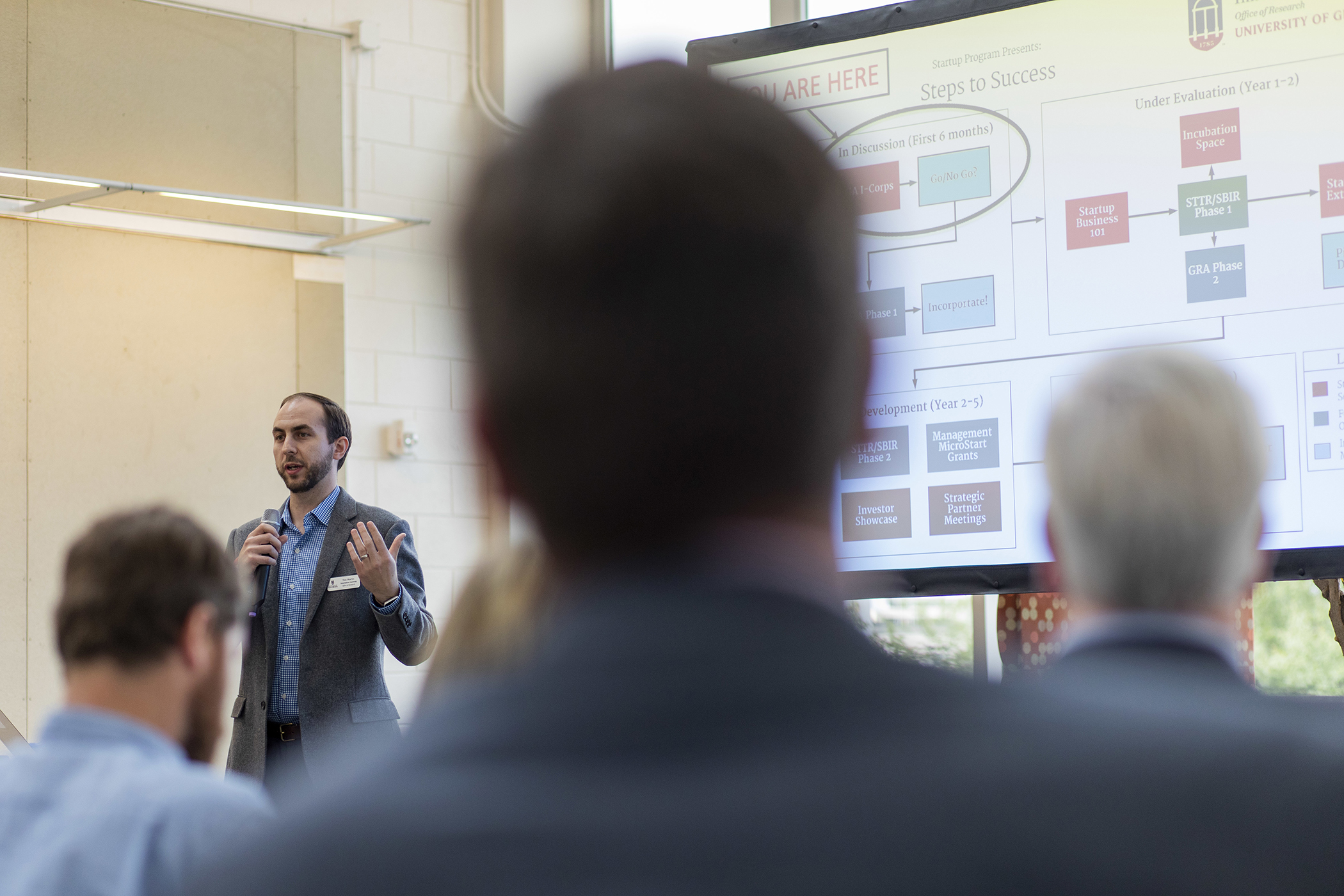Launching a new business is inherently risky. Most startup companies are unsuccessful, and those that lack insight into their customers and neglect to solve an unmet market problem are certainly poised for failure.
One program at the University of Georgia is designed specifically to mitigate these risks by helping innovators understand the commercial viability of their ideas and products at the very earliest stage of development.
UGA Innovation Corps, or I-Corps, is the STEM-focused program funded by the National Science Foundation that helps UGA researchers translate their technologies out of the lab and into the marketplace. UGA I-Corps teams receive entrepreneurial training during the six-week accelerator as well as funding to kickstart their customer discovery process to help determine whether a viable market exists for their technology.
Eleven teams, which include UGA faculty, staff, students and community members, participated in the six-week learning process this summer and presented their findings at the online I-Corps Summer 2020 Showcase held July 27. To date, 85 teams have completed the accelerator program, but this was the first cohort to receive the educational curriculum entirely online.
“The I-Corps teaching team and I were especially impressed by the quality and quantity of interviews conducted by the cohort during these turbulent times,” said Tim Martin, associate director of the UGA Startup Program and lead I-Corps instructor. “The teams utilized forums, LinkedIn, email, cold calls and personal referrals to acquire the crucial customer interviews needed to define their value propositions or pivot to a new market segment.”
The latest I-Corps cohort reflected the diversity of UGA’s research program. Projects ranged from insect catchers and a virtual reality building game to using platelet lysate to treat orthopedic infections in horses.
Kieran McMaster, a research design strategist in the College of Public Health, was part of an interdisciplinary team designing solutions to help older adults understand medical and health information.
“It seems that our initial design toolkit hypothesis was wrong in the best possible way,” said McMaster. “Working through this program, we found a greater need and a larger market because we listened to our customer interviewees and trusted the I-Corps process. We are now in a better and more informed position than when we started.”
The entire I-Corps Summer 2020 Showcase is available on YouTube.


